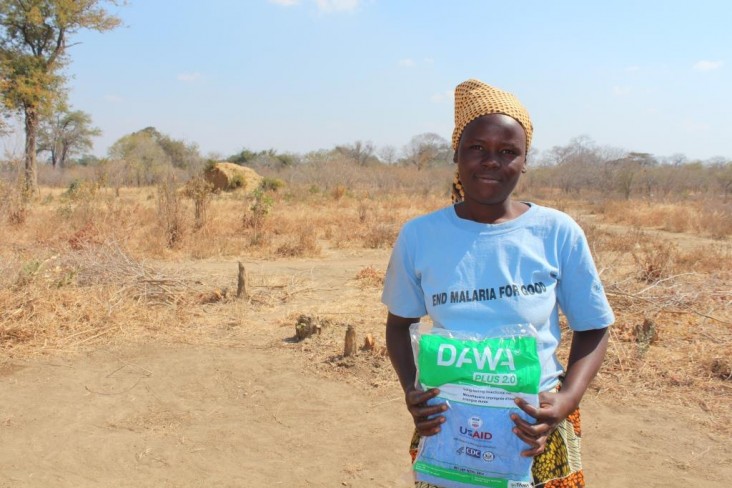
For Immediate Release
The United States Government and the Global Fund to Fight AIDS, Tuberculosis, and Malaria (Global Fund) supported distribution of 1,785,000 long-lasting insecticidal nets (LLINs) to communities at risk for malaria in August and September of this year. This effort, which is coordinated and led by the Ministry of Health and Child Care’s National Malaria Control Program (NMCP), was timed to precede the annual seasonal malaria transmission peaks witnessed during the rainy season. Correct and consistent use of LLINs is one of the most effective and inexpensive ways to prevent malaria.
As part of the U.S. President’s Malaria Initiative (PMI), the United States Agency for International Development (USAID) distributed 938,000 LLINs, which were combined with 847,000 Global Fund-procured nets, to maximize coverage and protection of Zimbabweans while sleeping, which coincides with peak mosquito biting time. As a result, 1,785,085 sleeping spaces and even more people are now protected.
USAID Mission Director Stephanie Funk stated, “LLINs are a critical component of USAID’s work to end malaria in Zimbabwe. The nets we distributed will not only protect the people sleeping under them, but will also reduce the number of mosquitoes and thus reduce overall malaria transmission.”
Since 2008, USAID has contributed approximately $90 million to prevent and treat malaria in Zimbabwe. USAID provides vital commodities such as LLINs, rapid diagnostic tests, and life-saving medications, while also supporting Zimbabwe’s NMCP to strengthen the health system, conduct operational research, train health care workers, and provide social and behavior change communications support. USAID also provides technical assistance to the NMCP to implement indoor residual spraying of homes in high burden areas with organophosphate insecticide to protect over 350,000 people from malaria each year.
Malaria is the third leading cause of illness and death in Zimbabwe, with over half of the population living in high risk areas. However, the coordinated efforts of USAID, the Global Fund, and the NMCP have contributed to substantial progress: in Zimbabwe, the reported cases of malaria decreased from 1.8 million in 2006 to less than 392,000 in 2015 – a 73 percent reduction.
# # #
For more than 30 years, the American people, through USAID, have contributed over $3 billion in assistance to Zimbabwe. Current projects include initiatives to increase food security, support economic resilience, improve health systems and services, and promote a more democratic system of governance.
For additional information, please contact Public Affairs Officer David McGuire at HararePAS@state.gov or Development Outreach and Communications Specialist, Doreen Hove at dhove@usaid.gov.







Comment
Make a general inquiry or suggest an improvement.